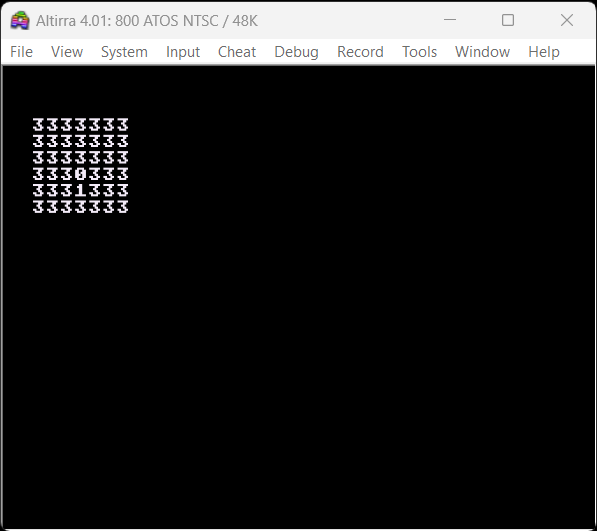ARRAY MANAGEMENT: ACCESSING (3)
This small example will show the basic syntax to define an array and to accessing it. In this case we show how to define a two-dimensional array, initialized with a constant (3). It also shows how to allow a parametric procedure to access an array in the main program.
source
compile
sandbox
issues?
back to examples


